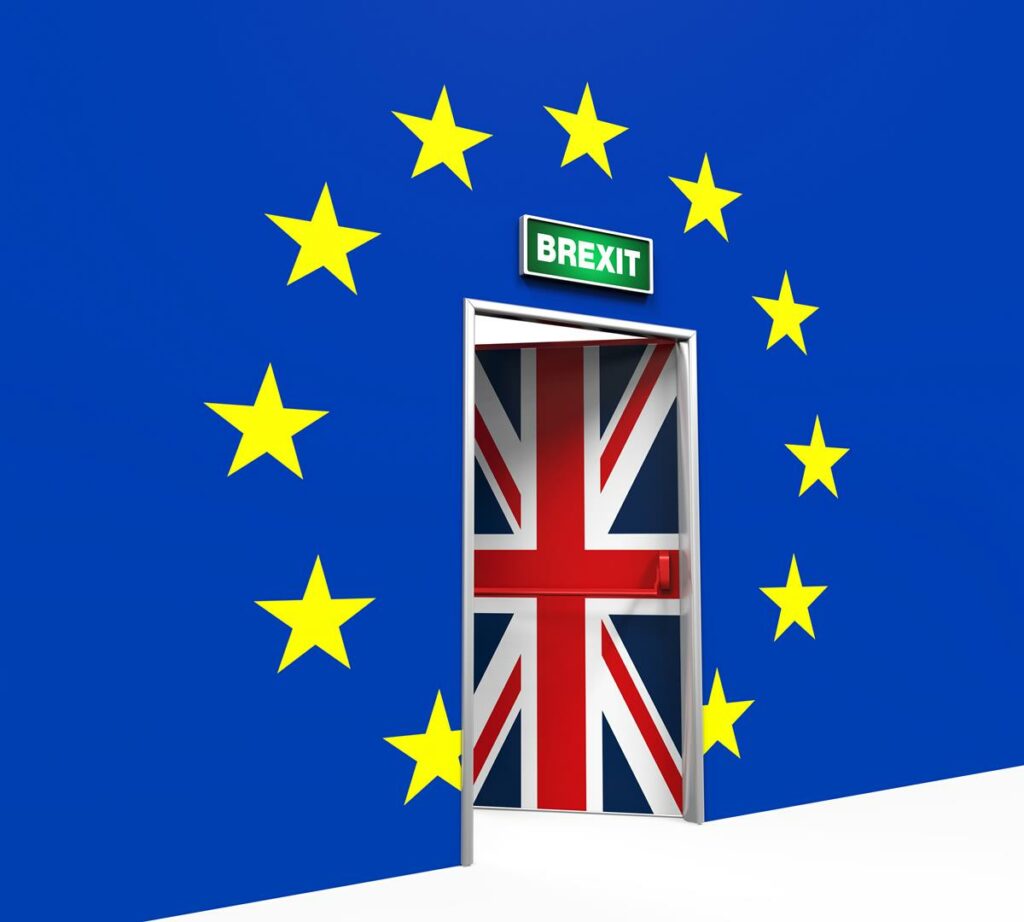Today’s result of the Brexit vote in the UK could have serious implications for the Irish agri-food industry.
While the future remains uncertain and will for months if not years, the implications for the Irish agri-food sector do not bode well.
Ireland is the 33rd largest exporter in the world and the UK is our single biggest trading partner.
Total Irish merchandise exports in 2014 were valued at €92 billion, of which almost €13.6 billion were exports to the UK, figures from Teagasc show.
Irish agri-food exports to the UK make up approximately one third of the country’s total merchandise exports to the UK. And that’s in the form of beef, dairy products and processed foods.
Irish beef exports by destination

Source: Eurostat COMEXT
Agri-food Imports from the UK
In 2014, total Irish merchandise imports were valued at €61 billion, of which almost €20.6 billion were from the UK.
Of that, the agri-food imports from the UK were worth €4.5 billion. And now the UK’s future trading relationship with the remaining EU members (EU27) is the most important factor for the agri-food sector in Ireland.
While its exit will take a number of years more than likely to negotiate, it’s the terms of these negotiations that will impact on Ireland.
Any exit deal with the EU will focus heavily on trade and that’s where Ireland’s reliance on trade with the UK comes under the spotlight.
Outside of the impact on Sterling, which fell to a 30-year low on the back of the Brexit result, how much trade can continue between Ireland and a UK outside the EU is unknown.
Cost of Brexit
Trade between Ireland and the UK will continue, but at what cost?
While Irish agri-food exports to the UK represent about one third of Ireland’s total merchandise exports to the UK, the ESRI says that the UK is more important as a source of imports to Ireland, than it is a destination for Irish exports.
It has estimated that Brexit could reduce bilateral flows between Ireland and the UK by 20% or more.
Teagasc has estimated that a Brexit could mean a reduction in the value of Irish agri-food exports of anything from €150m (1.5%) to €800m (7.2%) per annum.
The UK is a substantial net importer of agri-food products and Ireland has benefitted from this. It is the most important source of beef and dairy for the UK. But this could change dramatically.
Trade
Irish agri-food exports to the UK are dominated by commodities and unbranded food products, unlike Irish imports of UK agri-food stuffs and this is where the detail remains unclear – how the UK’s exit negotiations with the EU will deal with trade, especially in agricultural commodities.
Trade barriers and tariffs and real borders are all real possibilities now with the UK. While our reliance on the UK as an export destination has decreased in recent years, it’s still vital to our agri-food sector.
Teagasc projections estimate that the largest impact showed a reduction in total Irish agri-food exports of 8% or €800m, while the smallest impact of Brexit is an annual loss of agri-food export value of circa €150m or 1.4% of agri-food export value.
The effect of Brexit on the agri-food sector will also depend crucially on future UK agricultural policy. But, the UK’s attitude to its own agricultural sector leaves a lot to be desired in terms of support and that is unlikely to change.
The UK has been highly critical of EU agricultural supports in recent years and it unlikely to see agriculture in the UK as a critical sector and will, more than likely, focus on increased imports rather than supporting its own agricultural industry towards increased self sufficiency.

Who the UK trades with in the future will affect the Irish agri-food sector significantly
Where those imports come from is critical to Ireland and will, to a large extend, depend on the exit trade deals the UK hammers out with the EU. The UK is likely to look outside the EU for increased food imports and that’s most likely to be towards South America. That’s not good news for Irish agri-food exporters.
A most favoured nation outcome for Ireland’s relationship with the UK is possibly the best case scenario we can envisage right now, but how that will play out depends on the EU’s relationship with the UK. The EU is not likely to allow any dispensations towards the UK or Member States carving out their own trading agreements with the UK.
The current level and future levels of Irish agri-food exports to the UK may be seriously jeopardised, depending on any deal the EU negotiates with the UK.
And, as long as Ireland remains in the EU it will be bound by such a trade deal and any tariffs and barriers it may contain.
Brexit is not a good result for Ireland, but we have to live with the outcome.
